Updated July 29, 2024
When Ashley Dempster mentioned that she was able to fit everything on her packing list for Madagascar only because of compression packing cubes, I was intrigued. After purchasing my own and seeing how effectively they compressed various items, I concluded that the Eagle Creek Pack-It Specter Compression Cubes were strong contenders for the title of the best compression packing cubes ever made.
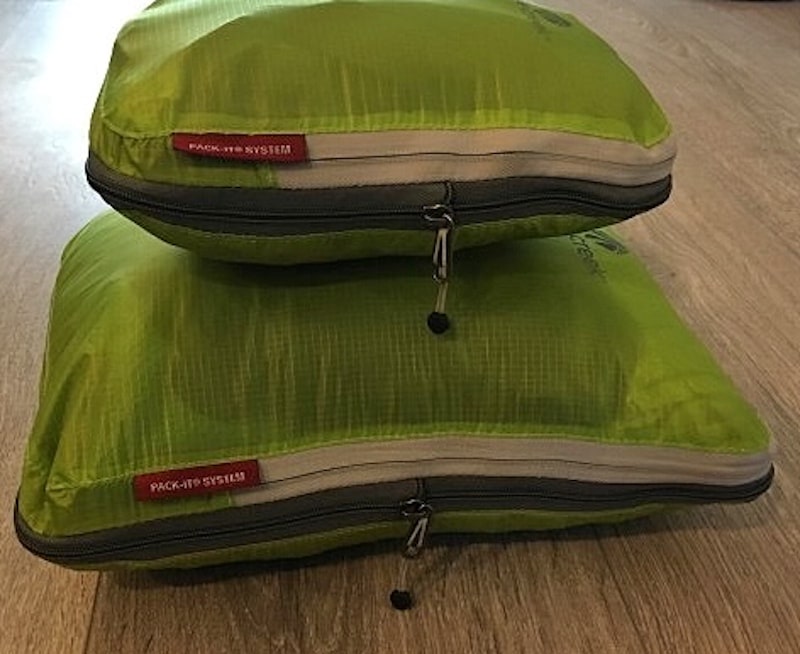 Photo credit:Ashley Dempster
Photo credit:Ashley Dempster
Table of Contents
What are compression packing cubes?
Eagle Creek makes two similar products: the Eagle Creek Pack-It Specter Compression Cube Set and the Eagle Creek Pack-It Specter Cube Set. ‘Compression’ distinguishes the two in name and function.
The best compression packing cubes?
There are several compression packing cubes on the market.
In my experience, the compression abilities of the Eagle Creek Pack-It Specter Compression Cube Set are unbelievable. They take compression to another level.
They come a set of two — a full cube and a half-cube, in a variety of colours.
The full cube measures 14 x 10 in / 36 x 25 cm. Open, the gusset adds 3 in / 8 cm in depth. This translates into an expanded volume of 13.5 litres. It weighs 2 oz / 63 g.
The half cube measures 10 x 7 in / 25 x 18 cm. Open, the gusset adds 3 in / 8 cm in depth to create a volume of 6 litres. It weighs 1.5 oz / 45 g.
First trip, I’m hooked
The first trip with my new purchases was to Ottawa, in the dead of a Canadian winter.
In Ottawa, I had a few commitments and a little sightseeing on the agenda. Both involved walking in outdoor temperatures of twenty below (Celsius), and indoor activities in heated buildings. When indoors, what does a person do with all that discarded outerwear? Or, in the case of one Eagle Creek Pack-It Specter Compression Cube, what do TWO people do with all that outerwear?
That’s where the larger compression cube earned its keep.
My young friend Jacob and I were able to stuff both of our jackets in the larger cube. If we hadn’t tried it, I wouldn’t have believed it was possible.
And that’s not all. Fully packed, the cube slid effortlessly into my small daypack to rest comfortably against my back. I was in packing organizer heaven.
Second trip, I’m impressed
In March, it was a little cool in Malta, and the heating system in our rental apartment wasn’t up to snuff. Three cheap blankets helped. When it was time to head to the Cinque Terre in Italy, we toyed with the idea of taking them… if the larger compression cube could handle the bulk.
Once again, the results were surprising. The larger compression packing cube accommodated all three blankets and all three earned their keep in Italy.
How compression cubes work
Each one has a two-zipper system. If you’re not looking to compress a lot of stuff, you might use just one zipper. In that case, open the cube, stow your stuff, and close it, much like a regular packing cube.
To create a larger internal space, open both zippers. Put your stuff inside the cube and close the first zipper. Then, activate the second zipper to begin compressing the cube.
That zipper circumvents the entire cube. Inch your way around the cube to close it, compressing the contents in the process.
The Silnylon Ripstop fabric is lightweight, but tough. It would take something sharp to rip it. Shoving a lot of stuff in the cube wouldn’t do it. It’s also water and stain resistant.
The zippers are built for heavy lifting. If for some reason they fail, the cubes come with a lifetime warranty.
How I use them
Lots of travellers use them as packing organizers for most of their clothing. They contain and compress, allowing for more pieces to be packed.
Me? I use them predominantly for bulkier mid and outer layers.
The small one works well for mid layers. It’s handy during a flight, or when layering down during the warmer parts of the day.
The large one works beautifully for my insulating layer and outerwear — a down jacket and waterproof shell.
How I might use them in future?
I travel with carry-on. The only time an airline employee has asked to see my bag has been at a check-in counter in Australia. Airlines in that part of the world tend to have a 7-kg maximum carry-on allowance.
A slight turn for the agent to glance at my standard carry-on, on my back, was sufficient. In my experience, a bag warrants no further scrutiny if it doesn’t look like it exceeds the airline’s size and weight limits.
That’s where the Eagle Creek Pack-It Specter Compression Cubes come in handy. If your bag is a kilogram or two over, the cubes help make it appear that it’s not.
For a little extra security
Each cube has a quick-grab handle. This could be used as an attachment point for tethering to internal bag hardware.
I added a plastic O-ring to the handle of each bag. This allows it to be clipped to an O-ring inside my daypack with a tethering strap. There might be times when it’s necessary to carry something of interest to a pickpocket in one of the cubes.
Compression sacs vs compression cubes
Before buying the Eagle Creek Pack-It Compression Cube Set, I travelled with two Eagle Creek Pack-It Compression Sacs, one for bulky items (Medium) and one for laundry (Small). The nylon-reinforced plastic sacs have a one-way pressure valve and zip closure on one of the shorter sides. They work by rolling the sac to remove as much air as possible, zipping it closed, then stretching the sac to flatten it and remove as many wrinkles as possible. Then, each one packs well in the bottom of a travel bag.
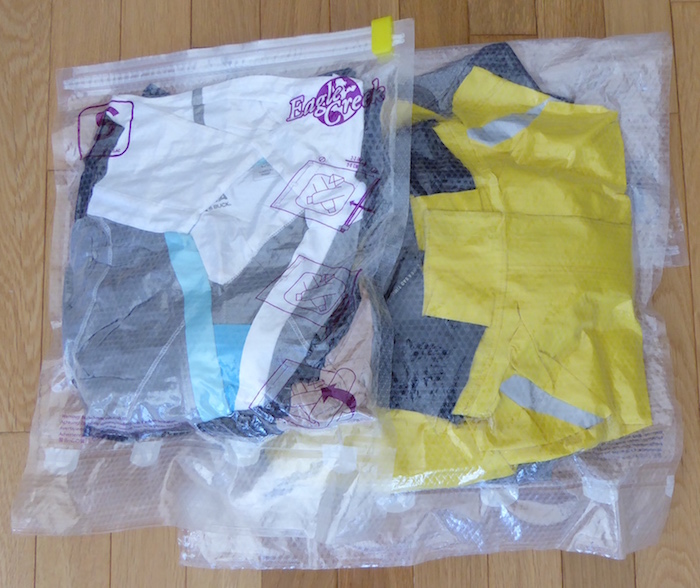
One advantage of the Eagle Creek Pack-It Compression Cube Set is that when used for laundry, the sacs suitably seal in ‘funk’ and damp items.
A disadvantage is that the sacs aren’t as soft and pliable as the compression cubes and the sharp corners don’t work well in a day pack or for sliding into a space other than at the bottom or top of a bag. As such, they’re not as versatile as the compression cubes. I’ve used a compression cube, stuffed with a hoody, as a pillow on a flight. That’s not possible with a plastic compression sac.
Conclusion
If it’s compression you’re looking for, the Eagle Creek Pack-It Specter Compression Cube Set fits the bill. In my view, they’re the best compression packing cubes ever made.
If you found this post helpful, please share it by selecting one or more social media buttons. Do you use compression packing cubes? Have you used the Eagle Creek Pack-It Specter Compression Cube Set? What do you think of them? Do you use other types of compression cubes? Which ones? Please add your thoughts in the comments. Thank you.
You might be interested in a related post: 12 Tested examples of packing cubes and other organizers.
Care to pin it?
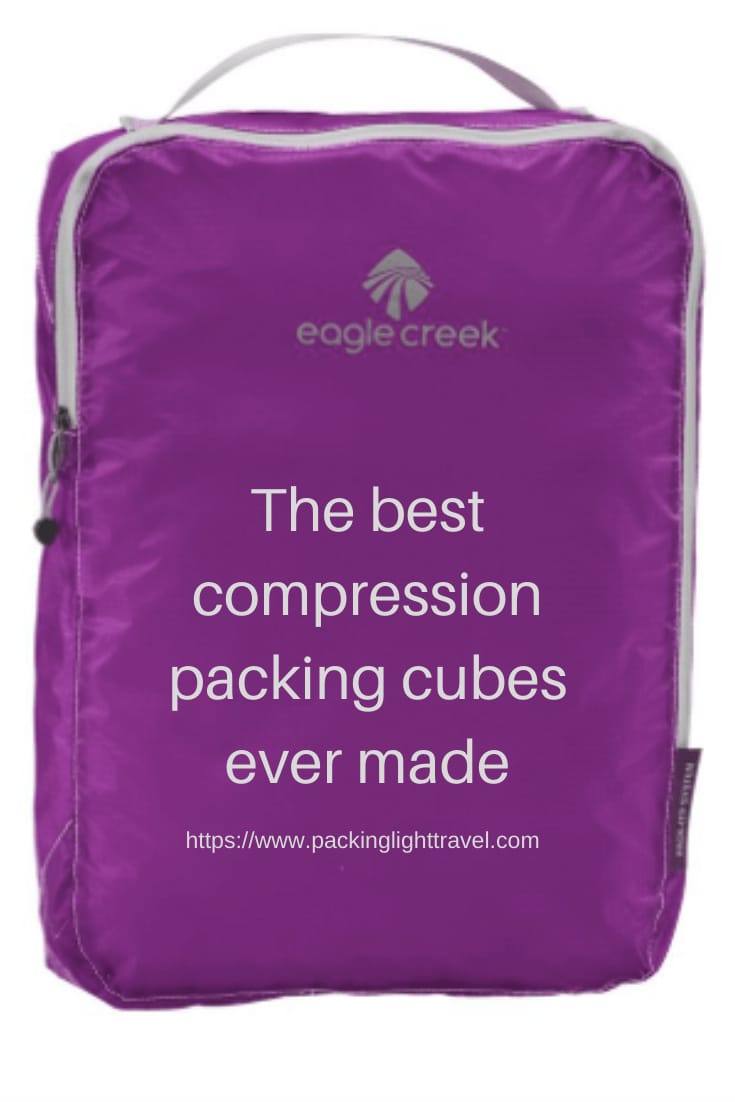 The Amazon links are affiliate links, meaning that this site earns a small commission if you decide to make a purchase, at no additional cost to you. Your support helps with the costs of maintaining the site. So, thank you.
The Amazon links are affiliate links, meaning that this site earns a small commission if you decide to make a purchase, at no additional cost to you. Your support helps with the costs of maintaining the site. So, thank you.

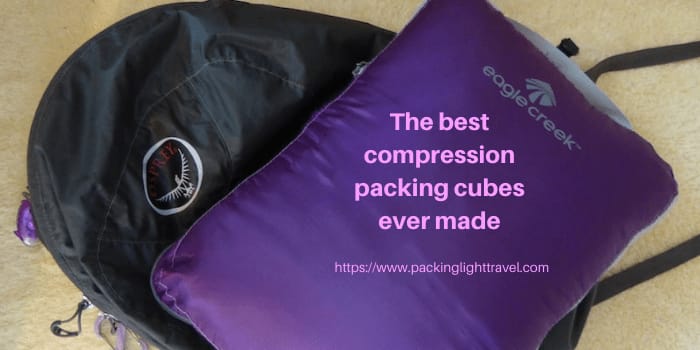

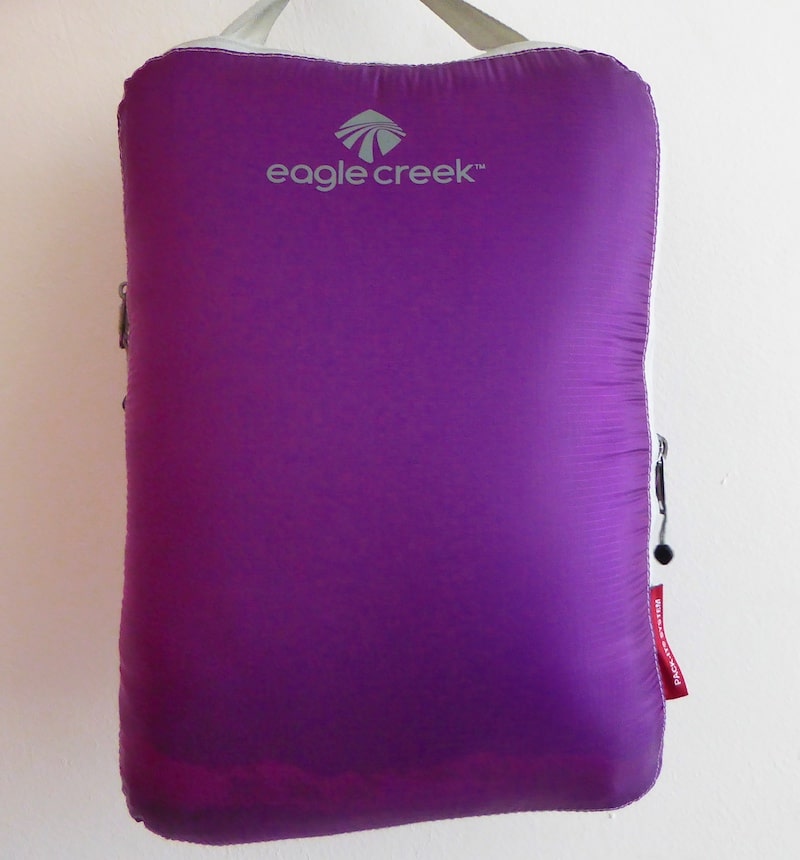
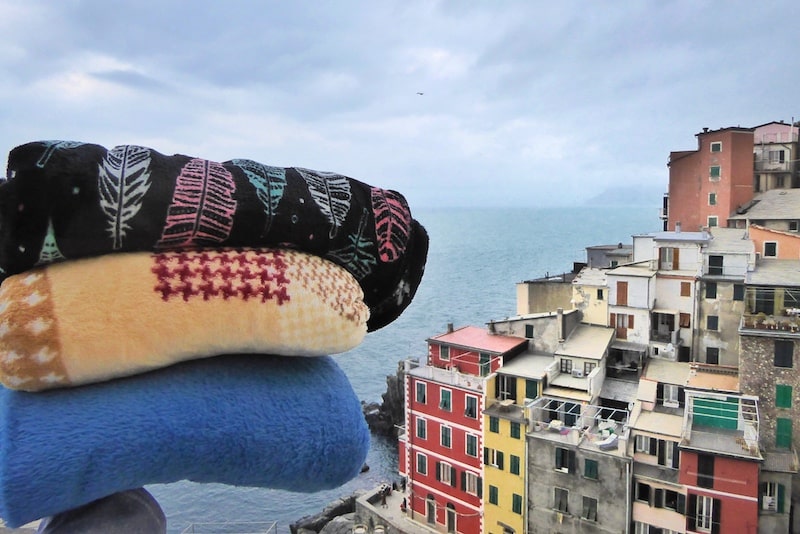
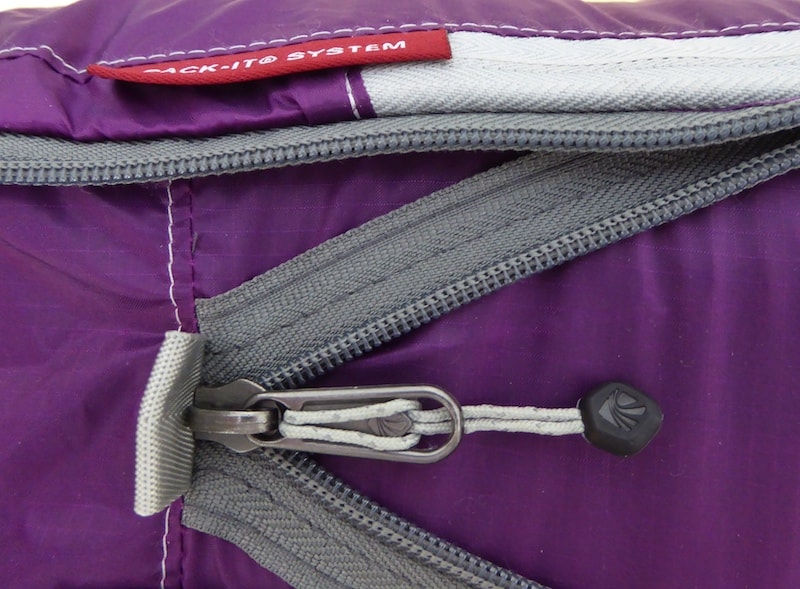
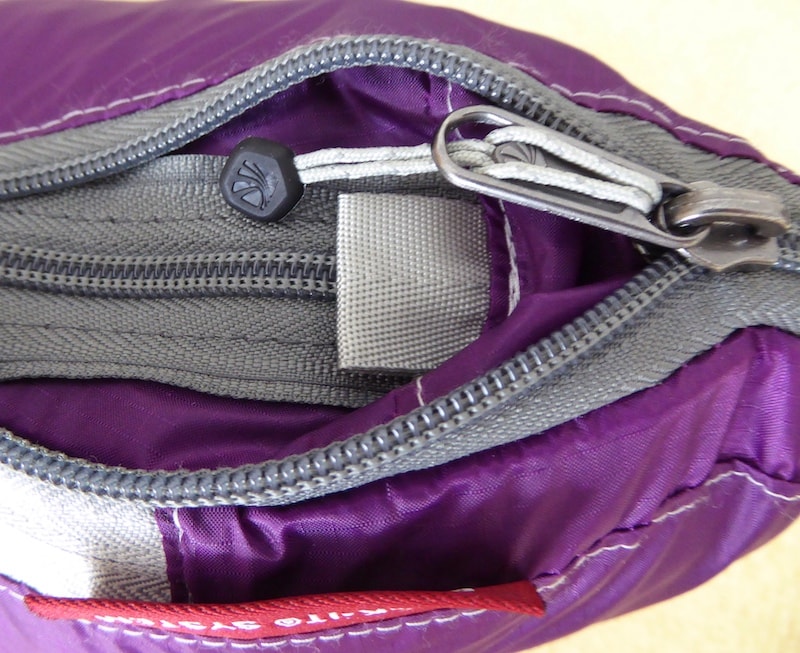
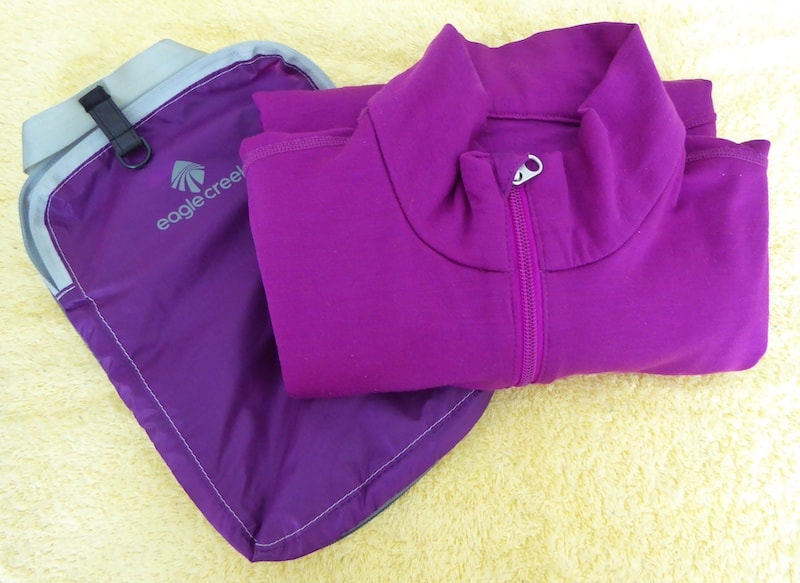
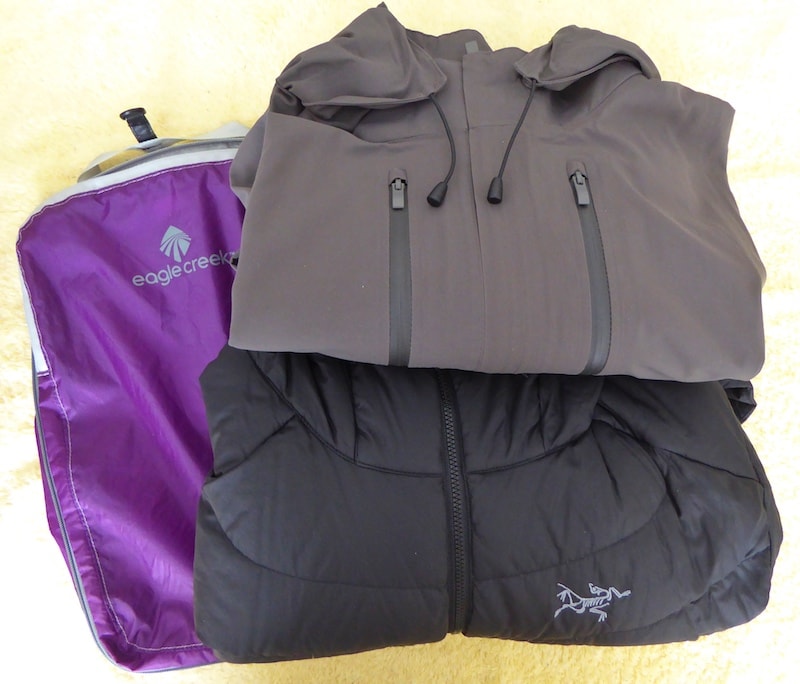
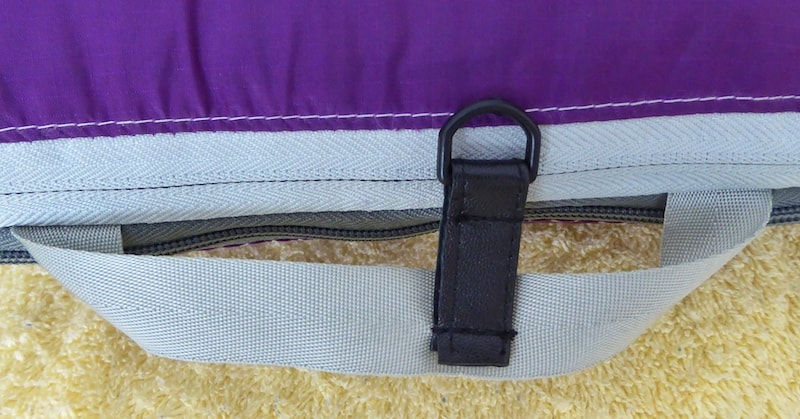


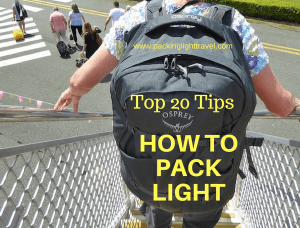

Always interesting as usual!!!! So amazed at how you always strive for packing perfections….you’re GOOD!!!!
Merci!
🙂